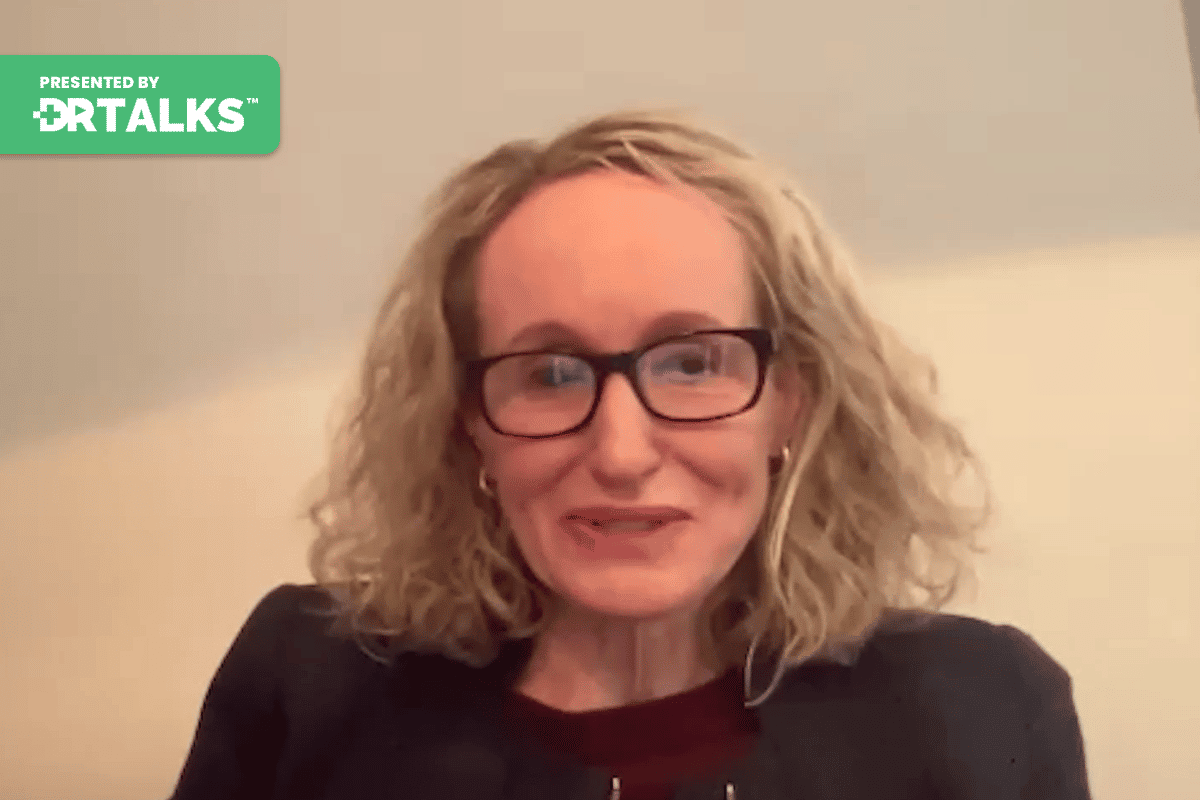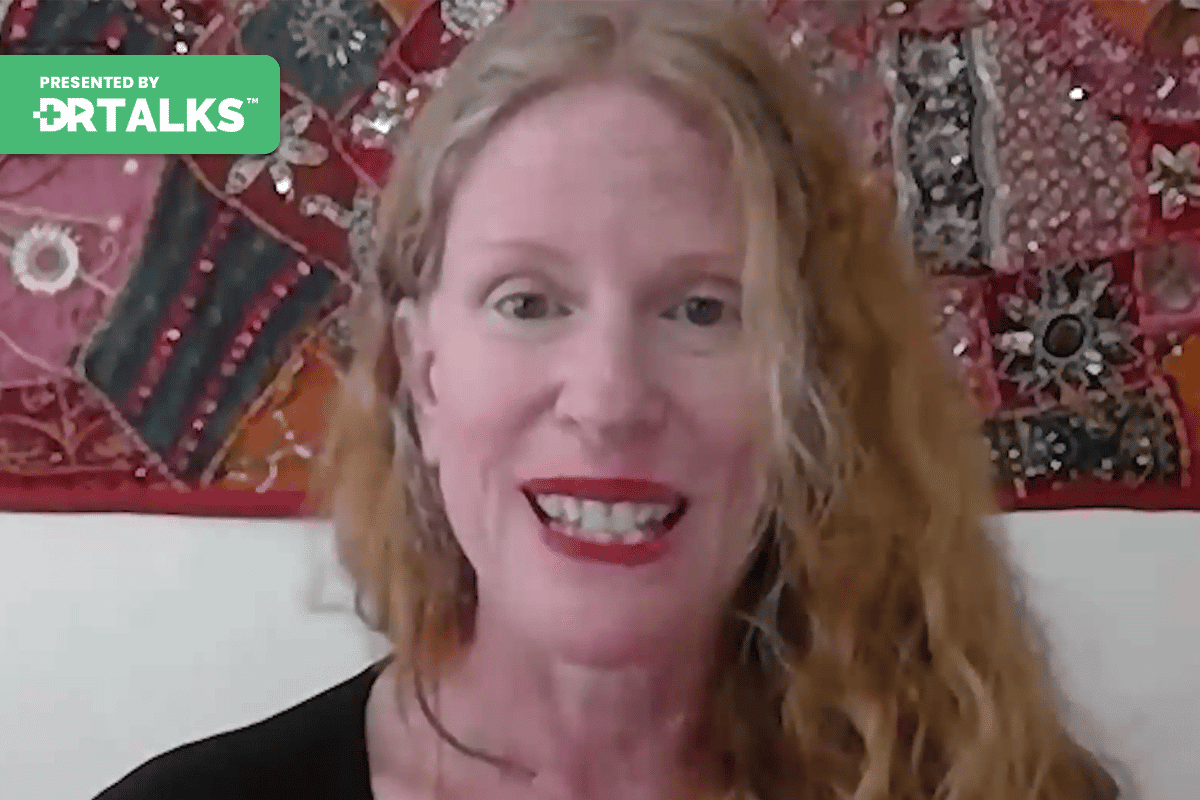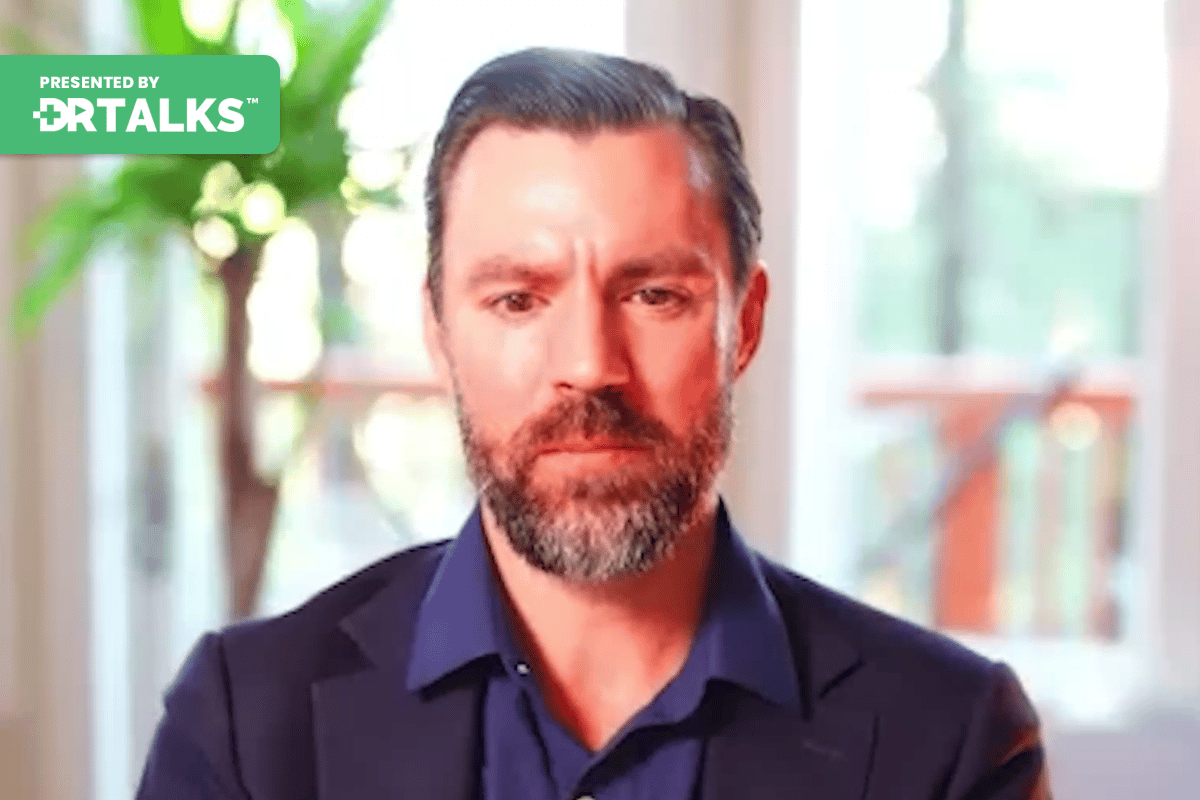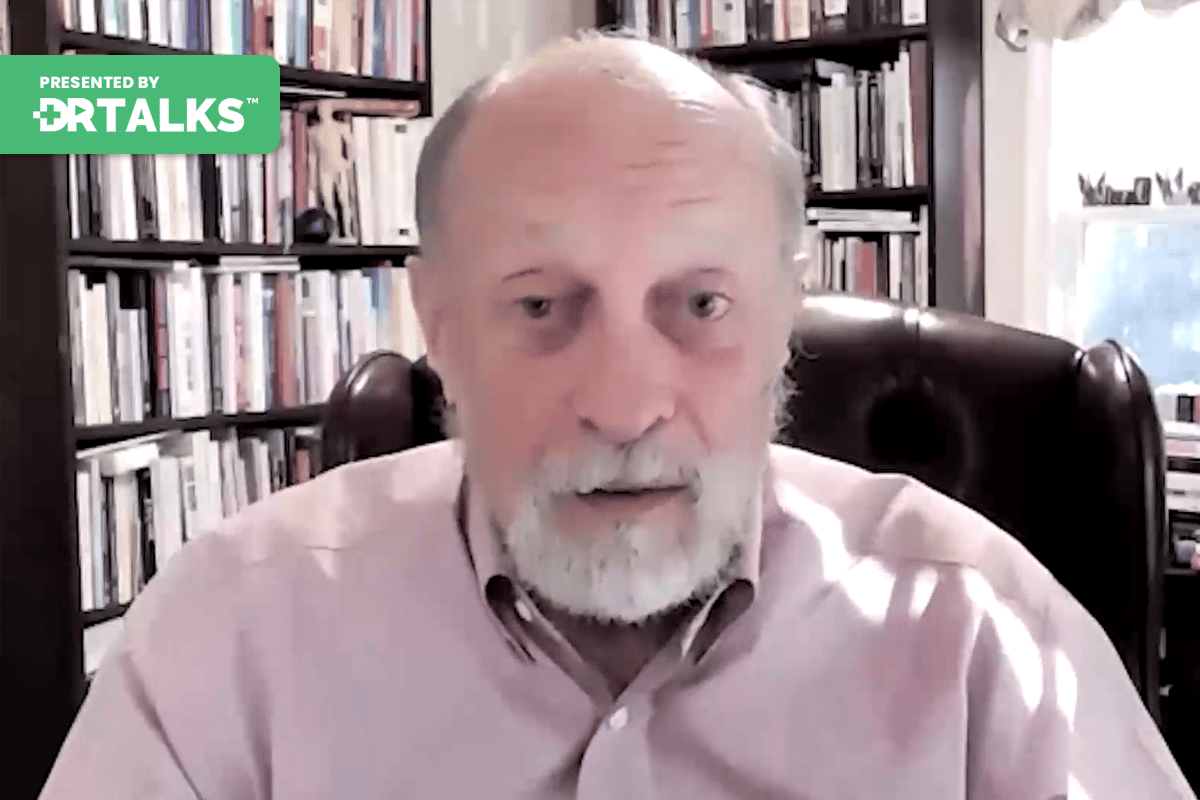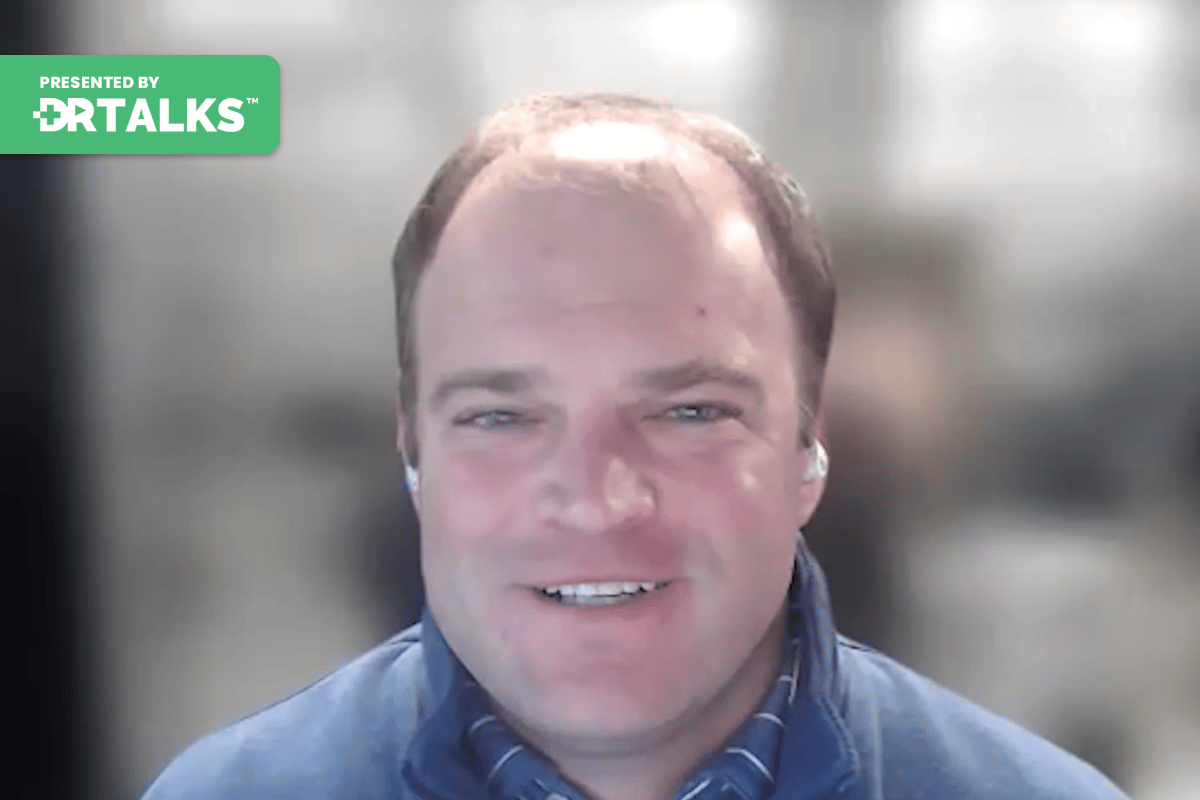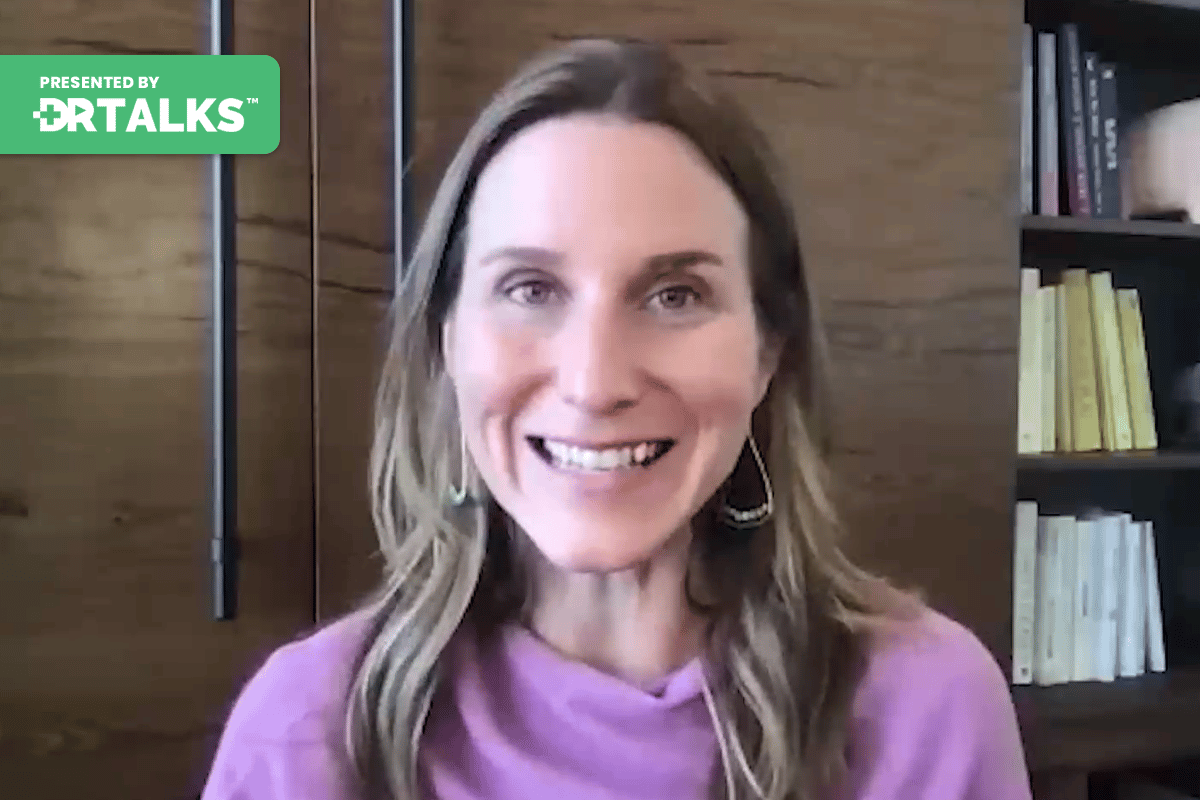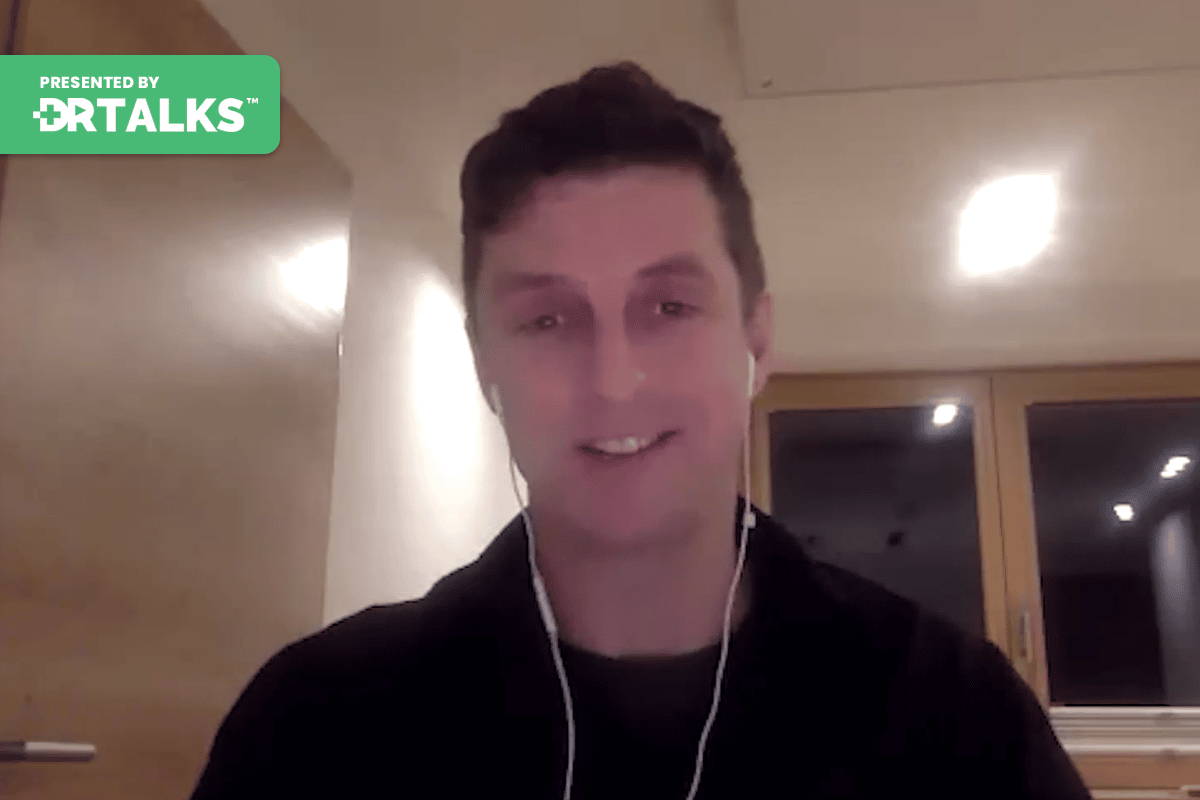Join the discussion below
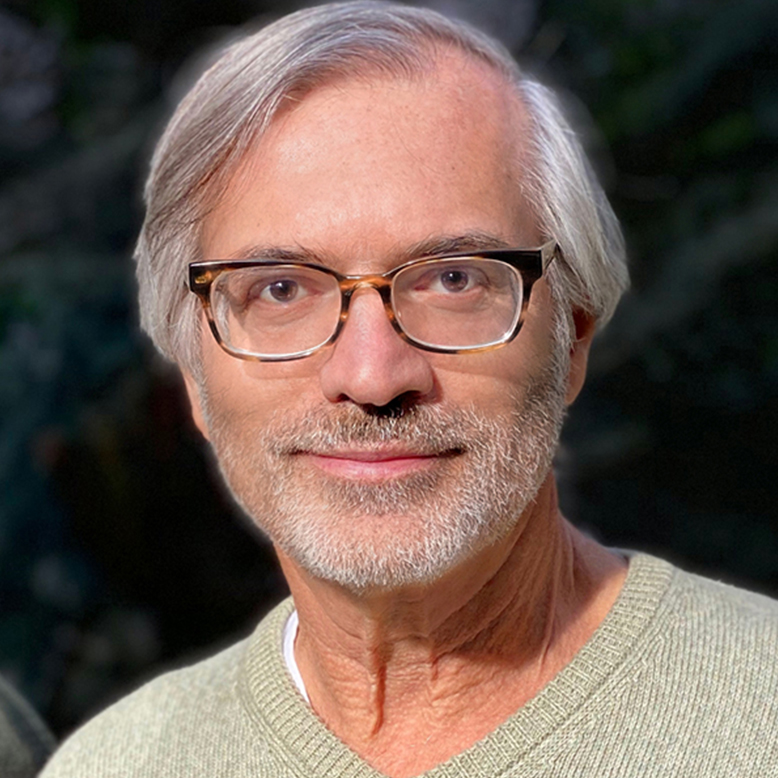
Eric Gordon, MD is President of Gordon Medical Research Center and clinical director of Gordon Medical Associates which specializes in complex chronic illness. In addition to being in clinical practice for over 40 years, Dr. Gordon is engaged in clinical research focused on bringing together leading international medical researchers and... Read More

Throughout her extensive medical career, Dr. Suzanne Gazda has uniquely combined a dedication to outstanding care with an authentic commitment to patients as people first. Renowned by peers and patients alike, Dr. Gazda offers a lifetime of experiences and that can best be summed up as truly extraordinary. From her... Read More
- We are facing an undeniable health catastrophe the likes of which we could have never imagined a few years ago
- The neurological impacts are vast and profound and in order to try and help the millions that are suffering, we must understand the complex mechanisms underlying this multi-system illness
- Health care systems will be crushed under the burden of this huge surge in chronically ill patients
Eric Gordon, MD
Okay, welcome everyone to another edition of Overcoming Long covid and Chronic Fatigue. Tonight I have my guest is Dr. Suzanne Gazda. Dr. Gazda is a neurologist which makes her a very special person in my opinion. It is really a blessing to have a neurologist or me for saying this who thinks it is neurologists are some of the smartest doctors I’ve ever met but they often tend to just think in boxes and Dr. Gazda is someone who has definitely been helping us over the years, think outside the box and really get a better understanding of what inflammation does to the brain that Dr. Gazda is in Texas. And tell us a little bit about how you got into medicine, especially into this type of medicine.
Suzanne Gazda, MD
Well it’s such a pleasure to be here. I monitored this opportunity to speak with you Eric and share the information to everyone that will listen to this beautiful event you’re putting together. You know when I started out as a pharmacist I grew up in a really small town in south Texas and I never thought I was smart enough to be a doctor. And one day I applied and went to talk to the Dean and he told me he looked at my transcripts and he said you have a snowball’s chance in hell of getting into medicine. Well I was a tenacious young student and knew that this is what I wanted to do because I really, truly wanted to help people heal And did have been a neurologist for over 30 years now but got interested in more of an integrative side of looking at things a few years ago after my work in northern Uganda where I on a school field trip I discovered with my daughters, this group of Children that were suffering with an environmentally induced form of autism. That’s all on my website. If anybody wants any information, the disease was called nodding syndrome. And suddenly I woke up and thought, well wait a minute. Maybe things in our environment are affecting people in the United States. And then again began to look at many of the different toxins that exist in our world. Of course, talking to patients about diet, exercise and all the fundamentals of health in lifestyle. So, and I became interested in long covid and covid when that hit our shores in 2020.
Eric Gordon, MD
And I see you joined up you got invited into the F. L. C. D. C. Group.
Suzanne Gazda, MD
Yes. And what an honor. I’ve learned so much from these incredible physicians. I that was a big step for me. I initially started working with Dr. Bruce Patterson’s group and learned a lot from them but branched off to the F. L. C. C. C. And do follow that protocol for the most part in many of the long covid recovery patients that I’m seeing. Yes.
Eric Gordon, MD
You know so at this at this point in time we’re now I always say, yeah this is two years into this mess.
Suzanne Gazda, MD
Almost three.
Eric Gordon, MD
Almost three. Yes. Yeah. You know, for, for those of us on the East Coast, not, pardon me, for those of us on the West Coast. Youknow, that first year was much, but it’s really been the last two years that things seem to have blossomed, especially insofar as the long covid, because that’s when we really started took a while. So we started to realize this was happening. You know, so do you expect to see, I mean, you know, changes in, in how people function and how the brain is working after after covid?
Suzanne Gazda, MD
Absolutely. I would describe what we’re seeing now as a neurological health crisis. This is a humanitarian catastrophe. And you know what? I wish I’m a really nice kind person. Happy go lucky most of the time. Very, very positive. But I am not going to sugarcoat this. I really think we need to look this straight in the eye and realize what we’re dealing with. Numerous studies now have looked at the incidence of Long covid. The CDC says it’s one out of five have lingering symptoms after the infection clears. But a recent study to be published in January of 2023 coming out of the United Kingdom looked at millions of patients after the infection and it was over 50% of patients that have lingering symptoms after covid. And I’m gonna probably say this a lot throughout the time we speak. But and that is we have to wonder why. Especially given. Of course when covid hit our shore’s the initial variants Wuhan variant and then delta variant were very, very serious. Many, many patients were hospitalized. Many patients died. I lost a brother to covid who was hospitalized. So no doubt it was a horrible, horrible illness. But then as the virus evolved to other variants on Macron and I don’t even know which ones were on Now, it has become less serious. Not in everyone, but in most so, the question we have to ask ourselves is if death and hospitalization rates are going down, why is long covid going up? And I sadly have to tell you that I don’t think we’re going to see that line going up start to go down any time soon because people are still getting sick. And it’s so challenging now because many people have had covid. Many people have had covid more than once, twice, three, many times. And many people now there have been billions of people vaccinated across the globe. Some 123, some have had five or six vaccinations. So now when we look at long covid it is very, very difficult and confusing to figure out how some why someone is sick and what are the physio path of physiological mechanisms accounting for this symptom ontology that just won’t go away.
Eric Gordon, MD
And so for you as a neurologist. What what do you see as the major post covid neurologic symptoms and syndromes
Suzanne Gazda, MD
So far and away. Its cognitive brain fog. Brain fog, brain fog cognitive issues. Again a few studies, the journal of Alzheimer’s published Wang and colleagues published in September of 2022 And they looked at a huge patient population about six million people. And the findings were this was an older cohort, 65 and older and they found that if you had covid your risk of getting dementia increased, especially in women over age 85 where their risk of dementia doubled. And a few other studies have seen. We’ve seen the same thing where after covid there is a rise in dementia. The question you have to ask yourself again, I bring this tagline in is why are we seeing dementia within six months to a year to two years after an infection. Typically we’ve been taught that Alzheimer’s begins at least Dale Bredesen says begins at least a decade prior to presentation but that now we are seeing almost in Alzheimer’s disease on steroids, very very aggressive form. We shouldn’t see dementia developed within six months.
These are patients that had no sign of dementia prior to getting SARS COv two. So there’s something particularly bad about this virus that leads people down the road to neurodegenerative disease. So brain fog for sure, excessive fatigue fatigue can be debilitating all on its own muscle weakness, neuropathy. New onset seizures. We’ve seen quite a few strokes neuro muscular disease, unusual movement disorders and tremors are the top ones that come to mind that we’re seeing in our clinic and things shifted. I’m telling you in 2020 when covid rolled out We had a few people that were sick. I have about 6000 patients and one patient ended up in the hospital from my entire practice. Most people treated their covid at home got better and went on about their way. But it was early in 2021 after the vaccines rolled out in December of 2020 that we began to see a shift with more young people coming in with stroke heart attacks. We began to see more new cases of M. S. Transverse myelitis. And again these patients presenting with lingering brain fog that just won’t clear.
Eric Gordon, MD
And in the neurological patients you feel there’s a particular inflammatory trigger that’s operating here.
Suzanne Gazda, MD
Well I believe there are a few very important mechanisms going on. We know now that the biomarker for long covid and post vaccine injury is the same thing and that’s residual spike protein. Spike protein as you know, is usually depicted as the little *** jewel on the crown of the virus that’s what allows the virus to attach to the ace two receptor enter the cell And infect your body well after the virus enters the cell, the spike protein breaks off and ends up in the bloodstream. Normally, our immune system clears that and it’s not left hanging around. But there was a study by Swank and all published in late summer 2022 that looked at a cohort of long covid patients and they found in the blood stream lingering spike protein out to a year. They stopped looking after a year, Bruce Patterson has found spike protein in nonclassical modest sites a type of white blood cell up to 15 months.
And if you speak to him today, you’ll say it’s longer. They’ve looked kept looking. It’s not going away. We find spike protein in heart blood and epithelial cells, basically every place the body has an ace two receptor which is virtually all organs, many different cells including mass cells. Platelets. Spiked. The big question is why is spike protein not linger not leaving the body? So we know spike protein can cross the blood brain barrier easily. And so if spike protein is lingering in our bloodstream then it is quite likely crossing the blood brain barrier and causing neurological damage? Including micro glial cell activation, neuro inflammation and even cell death.
Eric Gordon, MD
Do you think that it’s mostly despite protein not being metabolized or is it possible that we have if not persistent virus at least persistent production.
Suzanne Gazda, MD
That’s a good question. But you know, many studies have looked at in the beginning. We thought that this was some virus lingering in the hallway of arts of our body. Bruce Patterson would say there has never been a whole viral genome found. Yes, viral fragments. The virus comes and breaks down and we have those lingering fragments but one of those fragments is spike protein. So from my reading it is not lingering the virus that’s provoking these symptoms, it’s lingering viral fragments that are inducing high levels of inflammation in the body and in the brain altering the immune system, Wreaking habit in the bloodstream, micro clotting and various other mechanisms. And of course we can’t talk about neurological injuries and spike protein without mentioning Amyloid study by Nystrom at all. This summer 2022 she took spike protein and put it in a cell culture, not the virus, just spike protein. And within minutes the spike protein transformed into amyloid. So amyloid is a prion which is a misfolded protein and once the prion train starts to take off from the station, I don’t know if we really know how to stop that prions form and the downstream effect of that can be any neurodegenerative disease because I believe not only does amyloid form, but other prions such as alphas nucleons which is the prion behind Parkinson’s disease.
The prion and mad cow disease. The prey on involved in A. L. S. So we have a big problem with the pry information. You know Eric stars cove two is the only coronavirus that has a prion arm. And you have to ask the question why does this virus, why is this virus different than anything else? One reason is because it was made to have a prion arm at the top so it could attach more strongly. It was utilized for viral adhesion but we don’t want a lingering spike protein triggering prion formation. Dr. Luc Montagnier who is now deceased. Published an article before his death where he looked at 26 crews filled the Aqap cases. C. J. D. It’s a terrible illness right? Mad cow disease. It’s very rare. I’ve never seen a case in my entire career it’s estimated like I think one in a million cases. But these were 26 cases that came on within weeks after a covid vaccination Within weeks and they all died within 4-6 months. So what he described was again, you know, I talked about a new form of Alzheimer’s that is now here at our doorstep. One that is more rapidly progressing comes on in young and younger people he described a form of CJD with the same characteristics.
Eric Gordon, MD
And can you just explain I’m sure for a minute for much, much of our audience a little bit about Ryan’s and what’s the mechanism that makes them so difficult for the body to deal with.
Suzanne Gazda, MD
Well all these years I think we’ve been trying to find a way to stop pry information you know once amyloid and tau which is the other pathological protein we see in Alzheimer’s disease. Once they form they’re wreaking havoc on neuronal cells, synaptic connections, causing high levels of neural informations. But what’s quite bizarre about them and I’m sure there’s some sci fi movie that someone’s done about prions, but they self propagate. So once they form they don’t need anything else to form more pathology. And I think that’s been the big quest is once they start forming, how do we turn it around? Which is why it’s so important with any neurodegenerative disease. For example, Alzheimer’s Dr. Bredesen tells us, you know, utilize something like the Bredesen protocol protocol early in life where we put in place healthy lifestyle choices that are not only good for the body, but exceedingly healthy for the brain.
Eric Gordon, MD
Yeah, so basically, I mean, the thing that’s always intrigued me with the prion illnesses, like you say, you know, we were all appropriately scared with the mad cow disease, you know, that was and luckily it didn’t it was more of a fear. It didn’t go anywhere for most people, which is very good. But there must be some level that people are able to deal with that. Not every the idea, it almost sounds like ice nine remember who was, I forgot the author. But you know the book where like, you know, once you drop the crystal in all the water in the world with would freeze and obviously, you know with brian’s we have that issue that once the abnormal protein forms it can engender, you know, it can get other proteins. It can increase the likelihood of more of it for but and I guess at this point nobody knows how our body controls that at some level because it does take quite a while for these for most of the time for these diseases to progress. So is there any I just any hope here any thoughts on how we can look at this?
Suzanne Gazda, MD
Well, and I do think there are other mechanisms at play. We know that they’re in so I look at it in terms of the path of physiology is three as these mechanisms, one high levels of inflammation and immune dysregulation is going on. And we know that after covid and that spike protein can also induce an alteration of the innate and adaptive immune systems. So how do we keep inflammation down? How do we keep our immune system healthy? There are very, very many various ways to do that. Number two is autoimmune. We know that spike protein induces auto antibody formation.
There was a study done by one of my favorite colleagues, Dr. Birgani in published in frontiers of immunology January 2021 and he showed he looked at various viral fragments nucleus. It caps it, spike protein I think a couple of others. But with spike protein he found 28 out of 55 human tissues reacted to. Spike protein. This is called molecular mimicry. It’s like when you go to the store and you think you see your old friend from high school and you run up there and you go hi buddy, how you doing? And it’s really not buddy. It’s somebody that looks like buddy. So the immune system gets mixed up and now we start to form an autoimmune attack on the heart, on the brain, on the lungs, on the kidney etcetera. So that’s the second mechanism. The third is prions. The pry information. The fourth is micro clotting. You know receive Pretoria’s in South Africa has done most of this work and she believes that micro clotting occurs in all long covid patients do we have a way to to look at that? Can we do a blood test? Not yet. But it is coming. It is coming. So micro clotting is a big problem and it’s not the big vessels. I mean some people get D. V. T. S. Or blood clots have a stroke or heart attack but it’s the micro capillaries that are being occluded by these tiny little bitty blood clots. And of course if you try to exercise. And you have long covid you’re going to be more fatigue because you’re one of the reasons is you’re not getting the blood supply to tissue as you should. That’s the 4th mechanism. The fifth is a neurotoxin. There was a study done in on a multi system inflammatory syndrome and Children. It was a really beautifully designed study and they looked very carefully at the spike protein of the coronavirus. They looked at the spike protein motif and in the motif they found what looked like a neurotoxin very similar to snake venom. I don’t know how much this plays a role in the symptom Atala ji today but it’s a concern no doubt spike protein all on its own is toxic enough. And then we have mitochondrial dysfunction.
We have mass cell activation. We have viral reactivation. So many of my dermatology colleagues now are inundated with herpes zoster reactivation and so viral reactivation can also lead us down the road to an unhealthy brain lead to neurodegenerative disease. And then the last one I would last 21 is our advanced in essence. We know that spike protein can drive sin essence our cells that die aging. And if we have more senescent cells floating around in our body we have more immune dysregulation and immune dysfunction. So the last of course being gut dysfunction and we know after SARS cov two there is significant alteration of gut microbiome Dr. Sabine Hassam in southern California has looked at this very carefully. So I think restoring gut health is of prime importance. So to me there’s probably many more but those are the main path a physiological mechanisms and when I’m designing treatment protocols, I’m trying to go after those as top on my list.
Eric Gordon, MD
Right? Yeah. That was a very exhausted and nicely done list of you know, of the different ways that and they all seem to revolve around the spike protein which is really of much concern, you know, because usually when we think of a viral illness, we think of the immune system in most of the time it’s our immune system’s response to the virus that is what’s hurting us. And now we seem to be dealing with something where there’s a persistent viral protein that is setting off problems in a way almost beyond our immune system. You know, I mean like that’s this is different.
Suzanne Gazda, MD
It’s really different than anything we’ve ever seen before. As far as post viral, a post viral problem. And remember again, we talked about how in the beginning the Wuhan variant, the delta variant, those were severe variants. But the lets the vaccines, messenger RNA vaccine, a dental virus vaccine. They were all made to deliver a genetic code to your body to every cell in your body. So that you started creating spike protein, the Wuhan spike protein, The worst spike protein. Now the virus has evolved. So most people getting sick today are not getting that spike protein anymore. But people that are getting vaccinated are getting the Wuhan spike protein with every single dose. And I mentioned earlier? Some people are not clearing. So if Bruce Patterson has seen a spike protein and mon aside subject 15 months in the one study by swank, it was up to a year. If you’re getting vaccinated every 2 to 3 to six months, it’s very possible, then you may be someone that’s accumulating a toxic load of spike protein that the body is just not able to handle. So it’s a very alarming situation and I don’t think that we really know what’s coming given all of these potential mechanisms involved
Eric Gordon, MD
Right. Now, this is it is very very disturbing. Because I said you know when it comes to chronic fatigue, you know, we there are multiple viruses and environmental and infectious triggers that you know that that can you know, actually using the same mechanisms most, most of the same mechanisms that you outline. You know, especially the senescent cells which I think keep people stuck. You know, your your body is fighting last year’s battle forever.
But you know, if if you’re if we are not those of us who are not able to I think that this is what really needs to be looked at because obviously there are many people who are able to clear this with relative ease and so I think that the real step forward will be when we can get scientists and researchers to begin to look at like what’s the differential? Where is that hole in your immune system? You know, what are we missing? Because obviously many people you know get infected, get multiple vaccine doses and don’t have problems. And yet there’s a larger and larger and larger number who are getting into trouble. So do you have any particular thoughts on that?
Suzanne Gazda, MD
I’m wondering just as much as you are. You know, again, one of the other mechanisms at play here is that we know that spike protein, there was a study done by bonds sell at all and they showed spike protein and exorcisms four months after the covid vaccination. This is a problem, right. Because exorcisms have bidirectional movement, they get in and out of the blood brain barrier all the time. So, another study out of Germany and
Eric Gordon, MD
Actually before you go on, let me just explain for our listeners again that exorcisms are tiny pieces of your cell membrane, your body releases and cell communication. Devices probably, you know, they go up a lot. We see a lot more than the blood when there is inflammation. So this is so you’re and what they’re finding is that there’s tiny pieces of actually spike protein inside
Suzanne Gazda, MD
Inside the exorcisms and even neural drive their exorcisms, particularly in the brain. They’re called neuro derived exorcisms. And a study out of Germany found spike protein and another viral fragment in those exorcisms. So we know that the excess cargo is probably also perpetuating this problem. One other thing I would add is that there are at least three studies now that one study looked at the outcomes of stars reinfection. I think it was in nature. I’ll send you all my references but it showed that no matter how many times you got vaccinated it did not protect you from getting sick. And then it also showed but it did show the biggest risk factor for mortality, hospitalization and long covid was getting re-infected with SARS CO. Two. So it bothers me in a way when you know people say oh I’ve had covid four or five times. We really need to work really hard at preventing these viral re infections,
Eric Gordon, MD
Especially symptomatic ones. I think that goes back to something we were discussing before we went on the air and something that has come up in almost every discussion I’ve had is that the basic you know taking good care of yourself. I mean you mentioned Bredesen and you know for those who don’t know Dr. Bredesen has written two books I think about you know how to take how to prevent and how to recover from you know from alzheimer’s or from neurocognitive neurocognitive problems and they are taking care of yourself moving toxins minimizing toxin exposure eating a healthy diet.
Making sure you know and for most of us to taking appropriate supplements to keep inflammation in check especially in our unfortunately you know modern convenient toxic world. And so that’s that seems to be especially important if you are prone to recurrent viral infections. Because that there’s it’s yes we do have to be careful because remember I mean that is the thing is vaccines in general don’t prevent disease. They just generally prevent when they’re working well prevent people from getting severe symptomatic disease. But the issue that you’re describing with covid is that you don’t necessarily need severe disease to have to wind up being stuck with the large supply of.
Suzanne Gazda, MD
Well that’s true and again most of these long covid studies like the Journal of Alzheimer’s and a few other studies that have looked at neurological problems that developed after SARS covid two I would say the majority of those people had mild respiratory illness that didn’t require them to do anything more than stay home and take care of themselves. One other study I’d like to mention was a study done at the U. K. Bio bank. You know the United Kingdom has this huge bio bank 500,000 people that they pull from and do various things and in this particular study they had MRI’s on patients before covid. So they took about 300 people that had covid and 300 that didn’t have covid. And the 300 that had covid most of them had very mild illness.
And what they found was eric was really shocking is they found within a year, more global atrophy, more volume loss, particularly in parts of the brain, like the frontal region, which is executive function, memory, sometimes emotion as well. The para hippocampus, which is again primary memory center in the gray matter and the olfactory region. So, so much so that the researchers said usually, I’m sorry to say, but most adults have a little bit of volume loss over time, about 2.2% per year, which is it’s probably over exaggerated. But what they said about this volume loss, it was equivalent to 10 years of aging. So again, so no, I mean, I think we’ve got to try and not get sick again. The residual effects of these viruses, it’s not the it’s in my mind, it’s not a lingering virus that’s wreaking havoc on the brain and the body, Its lingering effects of viral fragments, especially spike protein
Eric Gordon, MD
At this point when you’re so here you are with a body that is not able to clear the protein despite protein that well. Are there particular interventions that you go for 1st, 2nd or third, depending on symptoms or what’s your approach, I guess?
Suzanne Gazda, MD
Oh yeah, that’s a really well, I would say every single patient is incredibly unique. And I we talked about before we started recording recording how important it is to develop an army a huge army of clinicians that really understand this problem because the reality is we have millions and millions of new very complex patients complex in a way in which we’ve never really seen before that are now standing at our doorsteps. We get 300 new referrals per month. There’s just two neurologists in my group. So sadly patients are waiting a long time and I can’t imagine what primary cares are going through. So it’s very unique and I think you have to understand those mechanisms that we discussed discussed earlier and try to really check off each one of course number one on my list. In the F. L. C. C. C. Protocol you can go to that website and go to the recovery protocol. They’re the only organization talking about healing the brain, healing the vaccine injured and I really treat long covid and vaccine injured about the same. There are different mechanisms involved somewhat. But number one is we’ve got to get spike protein out of the body. We’ve got to get it to take a hike. So how do we do that? Paul Merrick at the F. L. C. C. C. Says really the only way that he knows and we’re all learning is by up regulating autopsy gee. So time restricted eating some supplements that we recommend.
Reserve petrol sperm eating many others. The second mechanism immune dysregulation high levels of inflammation. I love LDN. Low dose naltrexone and then various supplements that can reduce inflammation. High dose vitamin C. Vitamin D. Kirsten melatonin. There are some pharmaceuticals. Sometimes I’ll use flu vaccine which is an ss ri. The S. S. R. I. S. Can sometimes reduce clotting. They can definitely reduce inflammation rarely will use a short course of predniSONE to to lower inflammation. The third mechanism is to address micro clotting and you have to do this on everybody everybody. So sometimes aspirin, Plavix rental or some of the pharmaceuticals. But I really love the natural anti fiber analytics nat akin’s, sarah pep, slumber keane’s. And some people maybe they need all of those, it’s really difficult to judge. So there are many arteries. All is another one. It just kind of coats the blood vessel lining.
But we have to work on reducing the micro clotting and then mitochondrial support addressing mast cell activation of course gut healing and to address and to address in essence we really a particular tautology. Those are the ways I go about it. It’s extremely complex. Usually the first protocol does nothing doesn’t move the needle. I do think Ivor Middleton can be very very helpful. It is in the F. L. C. C. Protocol. It is one of the things that has been found to bind spike protein. It also up regulates autopsy ji has immuno modulating capabilities and can lower inflammation. We use hydroxychloroquine as well. So those are the some of the things that are our top on my mind when I’m working through patient clinical protocols.
Eric Gordon, MD
Yeah. And I think what’s important for people to realize is he says number one is that these are not often magic bullets. They work slowly and for most people and together every once in a while we get lucky and you know you give somebody the you know the L. V. N. Or whatever and like kaboom, you know a week later I’m better. But yeah that’s the rare rare event. This is a marathon and it really takes some time. And so going to and I guess this is again this is what makes it an art is listening to the history I guess and going through what’s on top what system seems to be most dis regulated with that. That would be a fair way of looking at how you kind of start the puzzles, decide where to go in.
Suzanne Gazda, MD
Yes. I mean I’m looking at neurological impact, brain fog and fatigue but someone in general practice would probably be also hearing I’m short of breath, I can’t exercise. I’ve got muscle pain, muscle weakness so I do a full work up I do being because so many auto antibodies can form in this illness. I usually I’ll check a N. A. Show grins, I’ll check. C reactive protein. C. Three, C. Four. And then the and I always do an M. R. I. Or a neuro quant is extremely valuable looking at To see if the brain has high levels of inflammation if there’s any significant volume loss that’s already occurred. So you know because unfortunately some of these patients are presenting after seeing 456-789 or 10 doctors. They’ve been to the er 10 times and they’ve already had multiple studies, multiple labs done. So there may not be a lot of additional diagnostic work that needs to be done except just really sitting down and listening to the patient and understanding the plight that they’re in.
Eric Gordon, MD
Yeah. Yeah. One thing I would emphasize I think I’ve mentioned this in many of many of these episodes that you know unfortunately when you go to the the Centers of excellence that have been established across the country you know that you for long covid they have excellent positions. They have excellent cardiologists and rheumatologists and pulmonologist. And some neurologists except they are only looking for diseases that they already know how to treat.
Suzanne Gazda, MD
That’s right .
Eric Gordon, MD
And that’s what’s so frustrating. It’s yes but they’re not it’s like they’re only gonna play the music they know and if you come in and you have a different sheet a different sheet of music. They just look at you and send you on your way because they don’t have anything to offer. They can fix maybe your pots, you know, and give you a little help with. I mean the therapist can be very helpful in, you know, help me make sure you don’t overdo, you know, but they’re not looking at how they can really dance with the inflammation that is ongoing in your system or even begin to think about spike protein as having a persistent effect.
Suzanne Gazda, MD
If I would totally agree. It’s sending patients to mayo or tertiary care center has been a dismal disappointment lately. We urgently need Centers of Excellence for long covid as staffed by people that really understand these mechanisms involved and staffed by people that recognize the potential harm of a covid vaccine. Unfortunately, that would not be most people in an academic center, but perhaps that will be changing soon. We have staggering numbers of people that are sick now additional 1.2 million people applied for disability in 2021 versus 2020 and that we are headed for really an economic tragedy as well. Up to this point, covid. Long covid has cost the United States $3.7 trillion.
So putting some money into these urgent, really needed long covid recovery centers seminars where people could come and learn about our seminars like this. More seminars like this, where clinicians could learn about how to address long. covid and and tackling it, one system at a time because truly multiple organ systems are involved in this illness. Of course, I’m lucky, I just get to focus on the brain. But many of the other organ systems are also involved in this catastrophic illness.
Eric Gordon, MD
Right? And when you look at how you treat other neurologic environmental neurologic issues, you know, such as you know, after chemotherapy, is there a way that there are things that you have learned from that that you’re applying to long covid?
Suzanne Gazda, MD
So that’s interesting that you ask that in Stanford not too far from you, Michelle Manji is a neurologist that has studied chemo brain for a decade now and she recently shifted her focus and looked at long covid because so many people were also complaining of brain fog, which is a common symptom unfortunately in people that have had chemotherapy, a brain fog, a cognitive that won’t clear. But so what she found in her mouse model was the same thing and the mice were given a covid infection.
They didn’t die from covid. So again, we’ll assume they had a mild covid infection like most people have these days, but what she found was the same thing, she found in chemo brain and that is she found damage to the oligarchy undersides which are the cells in the brain that make Myelin, which is what is the protective coating for all of your neurons. I always describe it as imagine trying to turn on your light tonight, but the wiring was afraid it probably wouldn’t turn on. So Myelin is very important for rapid transmission of neuronal signals. So she found damage to Myelin, the white matter, the olive garden decides. She also found damage to the hippocampus, which is the primary memory center of the brain. So no wonder so many people dealing with this long covid post infectious illness complain of brain fog. What she didn’t find. She didn’t find any evidence of residual virus. She didn’t look for spike protein though. But we know from other studies that spike protein all on its own can induce a pathogenic activity in the brain. Studies have looked at this and we know that we don’t really need anything more than that. So yes, chemo brain and long covid brain have definite similarities. So in that study again, white matter damage the lines of communication. I call it the highway system of your brain. And the other study we mentioned was the UK bio bank is with the gray matter. So we have white matter damage and gray matter damage. No wonder the brain is in so much trouble.
Eric Gordon, MD
Yeah, it would be. I said, the hopeful thing here is that we’ve seen that when we try to treat these, we do get responses, you know, and I think that’s what I want people to remember is that unfortunately again, a conventional medicine, Chemo brain is usually treated with nice words. And I’m not realizing that the use of antioxidants and neuro protective neuro protective supplements can make a difference. Many times. These people are deficient in glutathione or ability to produce enough glutathione.
So again, looking into the arsenal that doctors who treat chronic fatigue and chronic you know chronic mycotoxin illness, I mean we have developed quite an arsenal of things that do work that do help that help people recover. And I think it’s just a question of figuring out which ones are best for which people and at this point are there any you mentioned a lot of tests. Are there any of the test because that helps you aim your therapy or because it sounds like a lot of it would be aimed by the history, which is how we generally get most of our information. We do a lot of testing, but on some level I think our history is still or what lead us. Is there any particular tests that give you direction? Particular direction?
Suzanne Gazda, MD
Well certainly and again, I think I’ve become almost the grim reaper and the lectures that I give these days that all of this information is so scary, but I agree with you Eric there are many, many ways to help these patients to heal and we can do it by strategizing and coming together in these treatment protocols and more than ever the doctors, the clinicians that understand functional medicine are opposed to just really take this on and advance the healing. And I want to learn more from you and more from your colleagues as well. But as far as what tests I do to determine again, I’m looking at neurological symptoms. I do an M. R. I. I do a neuro quant to see if there’s high levels of inflammation. Unfortunately we see the other, if we see significant brain volume loss or early atrophy, we know boy, we better get on this, we don’t have much time to lose. We usually do Annie MG nerve conduction. Study a small fiber biopsy because many, many patients have small fiber neuropathy, you know? No, I’m still a conventional neurologists who likes to have a diagnosis, but generally when all of those tests come back and they’re negative, we just we start addressing symptoms. Brain fall, weakness, fatigue, neuropathic pain with various mechanisms.
Eric Gordon, MD
Yeah. So it just to put it I guess to to keep giving some hope is that, you know, the issue with prion diseases that we all I mean we were always taught that they’re kind of like hopeless once once you had a prion mechanism going. But that was mostly with the mad cow with Creutzfeldt Jakob disease. But so with other with other prion like illnesses you’ve seen regression and stopping and stopping progression of disease.
Suzanne Gazda, MD
Yes, I think that’s definitely possible and I certainly learned that through Dr. Bredesen’s work that we can slow down and sometimes reverse a neurodegenerative disease as serious as Alzheimer’s. Similar protocols should work with Parkinson’s disease. Now things like A. L. S. Which we are seeing more commonly now are tougher. But there are specific protocols for A. L. S. Recovery. There are people that recover from A. L. S. We just need to make sure we’re addressing every single mechanism involved.
Eric Gordon, MD
Right? Yeah. I think the most important message is that luckily most people with long haul covid at this point you know have fatigue and some you know, autonomic nervous system problems, some shortness of breath, you know and some mild cognitive issues that wax and wane. And hopefully with the therapies that are available to their physicians, they can make some progress and really see some recovery.
Suzanne Gazda, MD
Absolutely. always say without hope none of us could survive. And many of these patients come to us, they have lost all hope. So sometimes that is the beginning of the lifeline is having a compassionate caregiver that is just really going to hold their hand through it and help guide them to recovery.
Eric Gordon, MD
Yeah. This I just want to remind people especially at the end here that yes it is. You know many of us have been treating these illnesses for a long time you know and the more the more definitive the diagnosis sometimes the harder it has been to treat. But we’ve been, you know, the atypical neurologic syndromes we’ve been treating forever and often with very very good success. When I say a typical meaning like, you know, you have Parkinson’s but the neurologist, you have Parkinson’s, but it’s not quite as clear cut as I would think or A. L. S. And you know, and we have seen that many of these people once you clear the underlying toxin or infection and you can then begin to get the healing with these rather than when people have a full flown a full blown diagnosis that’s really clear cut.
The work is a little harder, you know. So I think with covid I’m hoping that’s what we’re dealing with is that much a milder situation for most people and they’re going to see some really good responses. And the first thing is just the self care that’s needed of learning how to eat right and not fill your body with the toxic load that unfortunately we’ve developed in America today, it’s a great start. Yeah, cleaning it up. So I want to thank you. You know, you’ve given me a lot to think about. And you know, I’m hoping that the inspiration for the research is out there. I mean they’re the one good thing at the moment is the government is throwing a lot of money and that maybe they’ll let some of it filter down into air into researchers who are not just studying the next amazing, drug, but maybe we’ll be looking at what the body needs to support itself and have a little healing happen. I’m just hoping that that is going to be the case.
Suzanne Gazda, MD
I hope so too. And I know you had Pierre Corey Speak. And I’m sure he as eloquently as he usually does, emphasizes the point that we all need to come together, that the censorship of voices, the wisdom that was not heard. That needs that we can we just can’t have that tomorrow to anyone that it’s going to be difficult. I, you know, just I can I’ve spoken about this several times and I might as well just mention it now. I think the issue that we have is that the academic medical world, has decided that to discuss any issue around vaccines is to suggest that all the vaccines are bad. There’s no that you can’t start the discussion of when we should use the vaccine or which vaccines might be better or what in whom to any did it becomes this if you don’t agree that all vaccines are good all the time. There’s no discussion. And at this point, I personally know many. No, well I don’t know that many, but I know a few I can who are researchers who have, who produced research that they have not published because if they published it, it would be the end of their careers at this point to publish, to publish something that suggests that vaccine and this has been going on before. covid. covid just brought it to a screaming craziness. You know? We yeah, hopefully we’re gonna get to the other side of this that we’ve gone so far that we realized that no vaccines are, can be lifesaving. They can stop diseases, but we have to we still but they’re not perfect. And they do cause problems sometimes in vulnerable populations. And when you’re giving a vaccination to every person on the planet, you’re gonna hit a few vulnerable people and
Eric Gordon, MD
Well, especially this vaccine.
Suzanne Gazda, MD
Yeah. you know, and the issue was, is that, you know, it became we didn’t think, we didn’t think and we panicked. And, you know, and you have to admit in March and April when the death rates were rising in New York to such levels, I can understand the panic and the need to do something.
Eric Gordon, MD
Yeah, sure. But here, in February of 2021, there was a clear safety signal that the vaccines were very harmful by the various data. So, and certainly that signal is stronger now than ever before with 1.5 million adverse events reported in nearly 30,000 deaths. And don’t forget the under reporting factor of theirs by at least a factor of 30. So, no, I’m not saying that at all. I’m vaccinated. My Children are vaccinated, but it’s there’s some there’s a problem with this one and it’s time to move on.
Suzanne Gazda, MD
Yeah, on that. Less than joyful note. But
Eric Gordon, MD
I enjoyed speaking with you. Thank you so much.
Suzanne Gazda, MD
Thank you so much. Suzanne for your wisdom and knowledge.
Eric Gordon, MD
Wish you all the best.
Suzanne Gazda, MD
Thank you.
Eric Gordon, MD
Stay well.
Downloads

